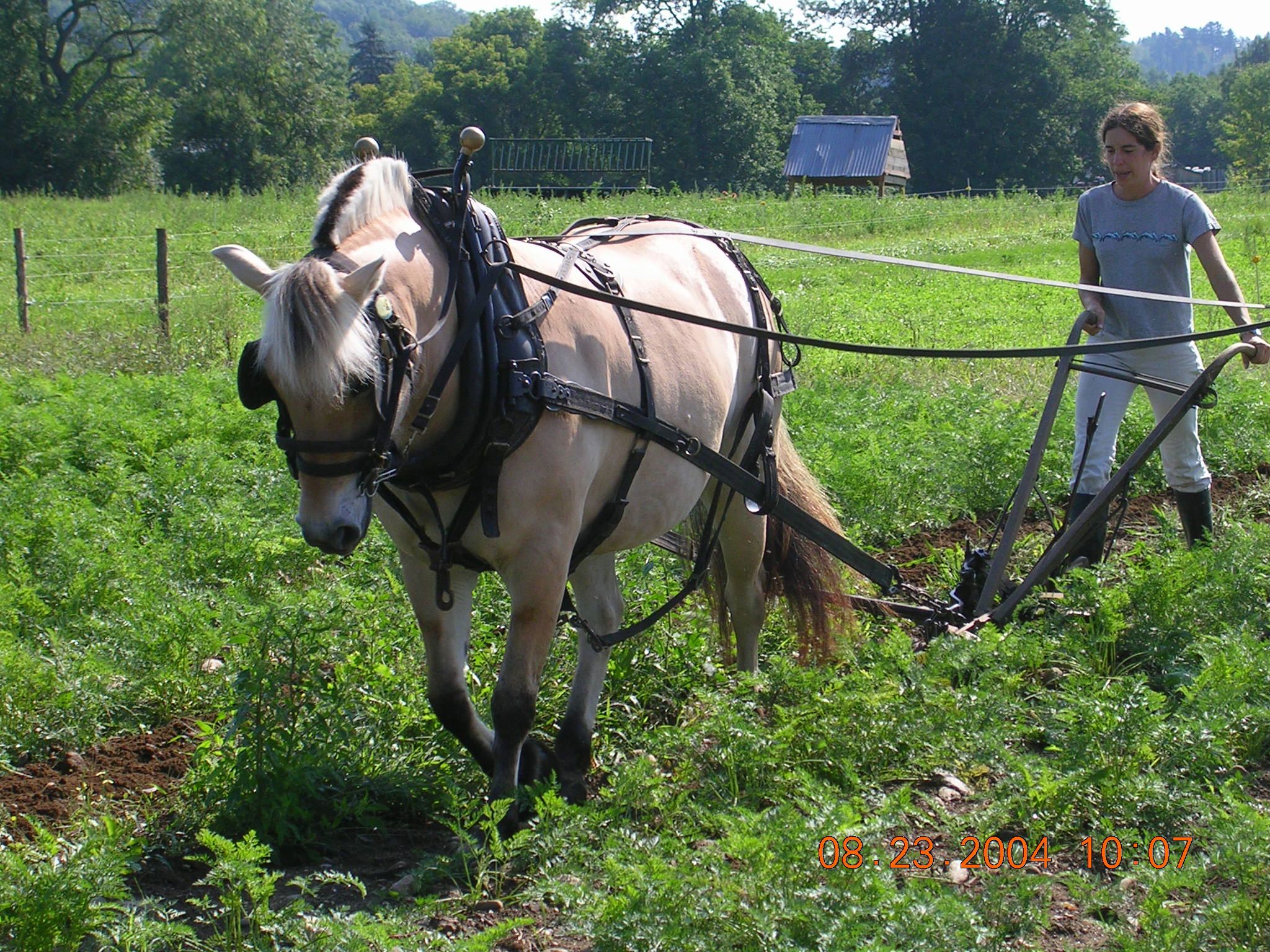Horses worked the farms from the beginning of time until about the 1950s when most farmers finally abandoned horses for the faster and more powerful tractors. During the 20s to 50s, there was a huge debate over which was more economic-tractors or horses and mules (a good recent book on the subject is Mule South To Tractor South, by George B. Ellenberg, Univ. of Alabama Press, 2007). The experts never actually agreed on which was better, but tractors were new and cutting edge and society was rebelling from what was traditional-yes, even farmers had a hippy movement.
The younger farmers wanted tractors and they were go to use them no matter how much more they cost than horses. Horses were sent off to the butcher and not because tractors meant less work, but really because horse-based farmers were afraid they wouldn't be able to compete. The government did a whizbang job of convincing everyone that tractors were necessary. So farming changed. Hedges that preserved valuable flora and fauna had to be pulled out to accommodate big tractors, a problem the government is now trying to fix as it's leading to extinction and pest problems. Pest problems caused an increase in the use of pesticides, farmers had to learn to be mechanics, the death rate skyrocketed with the use of heavy machinery, and the problems and inefficiencies go on and on.
Now don't get me wrong. I'm a horse owner and there is pros and cons to everything. Tractors can definitely do WAY more work in a day than a horse and farmers don't come home nearly as tired. Horses run away sometimes when scared and tractors don't (although they can certainly run away and do from handler error). The biggest con about horse farming is you can't make as much money. Right? I mean isn't that true?
Hmmmm
According to a research study done, amish farms are one of the fastest-growing segments of the U.S. farm community. The study cites tons of research proving that small, diversified Amish farms, using traditional farming methods and draft horses, or mules, as a major power source, are surprisingly successful, sustainable, and profitable.
Consider what one blogger wrote:
Amish farmers are buying farm land that can cost them ten thousand dollars per acre or sometimes more, and paying for it with horse farming. And because of their religion, the Amish do not accept farm subsidies that keep many “modern” farms “profitable.” Facing these facts, it is very difficult to see how economists or agribusiness experts can claim that farms using horses or mules for motive power are any more backward, or any less profitable, than farms using tractors.














No comments:
Post a Comment